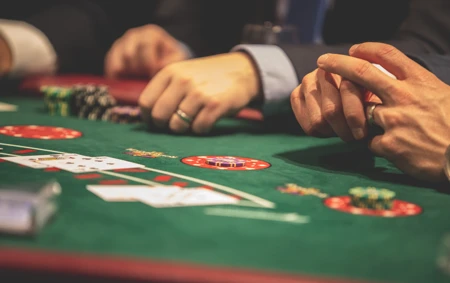In this article, we explore what happens when you apply for a mortgage, when gambling might affect an application, how much gambling could be considered too much, and what your next steps should be when applying for a mortgage if you do gamble.
What happens when you apply for a mortgage?
When you’re applying for a mortgage, your mortgage adviser will conduct what is known as an ‘affordability assessment’. This is a way of ensuring you’re able to meet the monthly mortgage repayments.
Mortgage lenders will take lots of different things into consideration when conducting an affordability assessment. This will include assessing your incomings against your outgoings, and you may also be subject to a credit search.
- Income – Evidence to prove employment and income (from all sources), annual salary or weekly wage, and any other earnings (which may include rental or dividend income)
- Outgoings – Any regular expenses you make (such as mortgage payments or rent), committed payments (including insurance and utility bills) household expenses (such as food bills) or existing loans (such as car finance).
- Credit reference check – The majority of lenders will conduct a credit reference check on you. Before applying, you may want to look at your own credit score using well-known credit reference agencies.
All of this will be taken into account when applying for a mortgage, and gambling may well be too.
When will gambling affect a mortgage application?
We’ve looked at what happens when you apply for a mortgage, but how could gambling affect your chances of being accepted?
Mortgage lenders tend to look for a few things when assessing gambling, including:
- How much money is being staked in total
- How frequently you are betting
- What type of gambling you are doing
In a nutshell, an accumulator every now and then isn’t going to prevent you from buying your new home. Mortgage lenders generally don’t punish applicants for gambling small amounts here and there.
The key word here is sustainability.
Is your gambling considered sustainable? Moreover, is your spending sustainable? For example, are you keeping within a set budget that doesn’t impact your ability to pay all of your regular outgoings?
Is gambling affecting your standard of living? You should be in control of the gambling and factor it into your monthly budget – it should be something you do for leisure, where you spend no more or less than the amount you’ve set aside.
In conducting an affordability assessment, if a lender sees any evidence of regular gambling, does this look reasonable and sensible? If the answer is ‘No’, then you may find your options severely limited.
How to get your mortgage approved
If you do gamble and you’re worried about getting a mortgage, you could try the following things to help improve your situation and get yourself mortgage ready:
Clear your debts - Clearing off any debt you have shows that you’re responsible when it comes to your finances.
Regular savings - Again, it’s all about responsible lending, so if you can show that you have a savings account that you pay into regularly, the lender will see you as a low-risk borrower.
Good credit history - Having a good credit history improves your chances of getting a mortgage, so you should work to improve your credit score.
Stop gambling - If you’re really worried about it affecting your chances, try your best to stop, or limit, the amount you gamble. Please bear in mind that this all entirely depends on how much you’re gambling. As previously stated, if it is safe and sustainable, lenders generally speaking will not have too many issues.
Get help for gambling addiction
If you’ve been refused a mortgage due to gambling, now might be the right time to turn things around and seek advice. Visit the GambleAware website for help with a gambling addiction.
Talk to a mortgage broker
If you’re still concerned about whether gambling may affect your mortgage application, you can get in touch with and speak to a mortgage broker. We can give you the right advice for your circumstances and help you find the perfect mortgage.

